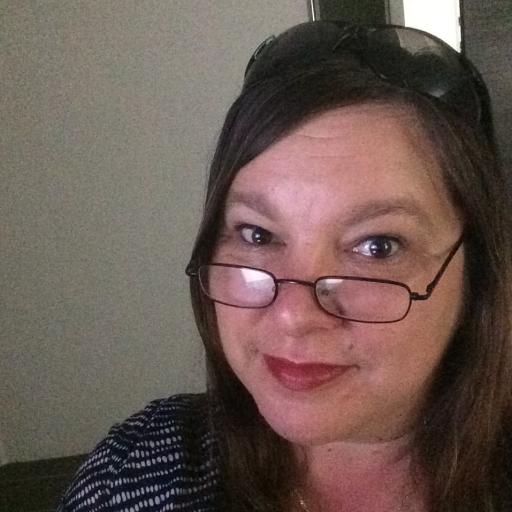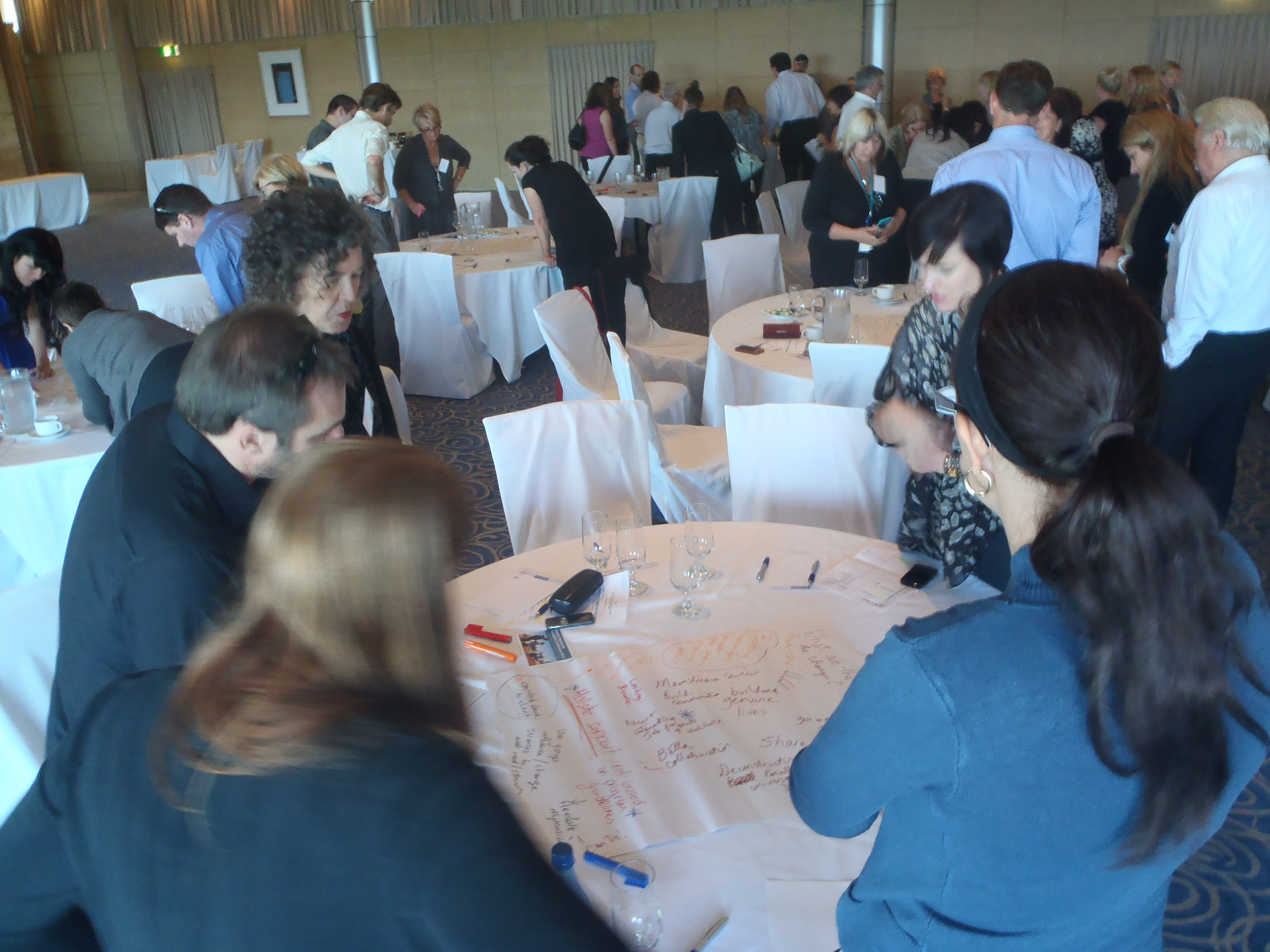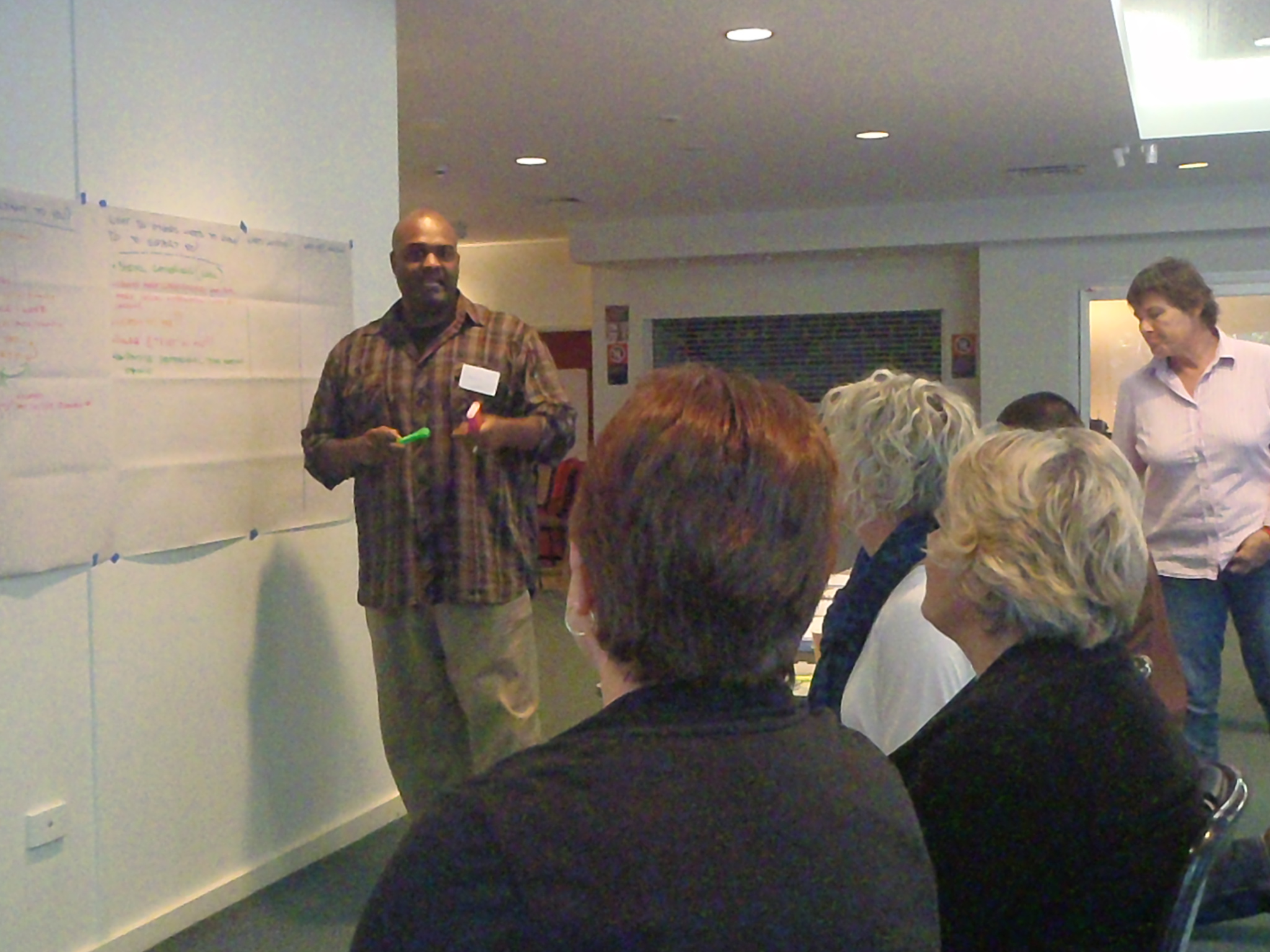
State or Province:
country:
what are your gifts and talents?:
why do you want to join abcd in action?:
After the success of the Unconference 2014, we were approached by Sheridan from CIM Magazine, theNo 1 Business Events industry publication in Australia, toshare our story with the public.
Sheridan's article starts; "Conference formats are changing with delegates becoming participants looking to engage in topics rather than simply be consumers of keynote speeches..."
He continues, "...The Unconference, an annual event held this year at the Hunter Valley Hotel Academy in New South Wales, sees delegates from across many community sectors invited to discuss a raft of community topics they feel passionate about including disabilities policies, organisational change, aged care and community engagement."
It was very affirming to read about other industries who are also using an Unconference format and highly affirming that we are on the right track by bringing people together, on a level playing field, around conversations that matter in this format!
You can read the full article here:CIM Delegates in the Driving Seat
2015 is looking to be a huge year for Unconferences with 3 planned in New Zealand, one in Victoria, Australia plus, the annual New South Wales event! Watch this space and consider coming along to join us!
In addition, if you have a burning topic or issue and you would like to consider co-hosting an Unconference in your area, let us know!
So, watch this space! Follow us on Twitter @bigconvos and share in the participant-driven magic!
Hi All,
Tonight, I'm very grateful toJanice Jonesfor stepping up, as an ABCD Asia Pacific member, to deliver a keynote speech on Asset Based Community Development at State Islamic University (UIN-Alauddin) in Makassar, South Sulawesi in Indonesia from November 25-28, 2014.
I will be sending a youtube clip, in my place, whilst I facilitate the Families NSW Forum in the Illawarra!
Social media is so cool! I'll be there in spirit with you, Janice, Susan and Lina!
Thanks to Susan Wismerand Lina Kalfayanfor inviting us!
Social media is so cool! I'll be there in spirit with you, Janice!
Yours in Community,
Dee...
Hi All,
My daughter knows I love watching Ted talks but I also love storytelling so, she sent me 2 links which I have been hooked on! If you like listening to great stories, too, check these out!
The Moth - True Stories Told Live
Warning: make a brew or pour a glass, you could get lost here for hours!
Regards,
Dee...
Well, not quite... tomorrow!
I'm very excited that people are already arriving and I'm looking forward to flying from Adelaide to Sydney this afternoon and driving up to the Hunter Valley with 2 hitch-hiking Kiwis!
Tomorrow at 1pm, opening circle commences! I can hardly wait to hear emerging stories this week as we travel through the "U" and into the future, together!
I'll post pics and updates, when possible!
Happy Unconference Week, everyone!
Regards,
Dee...
Between Chaos and Control
Before the beginning of great brilliance, there must be chaos. Before a brilliant person begins something great, they must look foolish in the crowd."
~ From the I Ching
Over the years of working with people; community members, teams, friends, my family, I have observed and reflected on the path between chaos and control and Ive come to the conclusion that sometimes sad is ok, and in fact, often it is quite necessary for personal growth!
Stick with me while I explain and the graph below should explain itself!
Lets start with the premise that we have these two ends of the spectrum; chaos (when things are out of whack) and control (when things are as they should be).
When all is going well, we can easily shift in the direction of control (normal routine, negotiation, controlled emotions) but when a massive reality slap hits us (death, breakups, betrayal), we more easily fall into chaos (everything seems wrong, messy and really difficult).
Once the initial chaos is over or has been grieved for (2 days in bed, talking to no one, lost in a fog) we can start to find our bewildered way back along the path towards control (everything may be still messy but, life is a little clearer) and here is the key lesson I have discovered: It is through chaos that we find the emerging seeds of healing - where we find innovative and strong ways to get through! It is here that we discover how to balance between the two states of chaos and order because being wholly in one state is no help, at all!
Are you still with me?
We can't find healing through being stagnant, in denial or pretending to cope, we actually find our steps towards healing through initially allowing ourselves to be in the chaos or grief! Neat, huh?
When ready, ask yourself some questions;
l What makes you tremble (with anticipation or excitement) for your future?
l Who would you be without your story?
l What is your learning edge from this experience?
l What do you need, from those around you, to feel supported in the places that make you anxious?
l How will you stay open to your personal emergent learning?
Through this process, whether it is a week or a decade, and with diligent effort, you will have learned something more amazing than money can buy and you will have the opportunity to pass it on to others, through your personal experience and story!
One of my inspiring colleagues, Peter Kenyon, says; "The world is not made of atoms; it is made of STORIES" so, when youre ready, when youre feeling strong enough, I encourage you to pass on your experience... talk with others around a circle (coffee table, fireplace, kitchen table) as our ancestors have done for generations, when learning new ways to heal and evolve, and eventually, you will pass on your lessons to others, in a meaningful and deeper way!
Yours in Community,
Dee
Late one Friday afternoon, I was talking on the phone with the Regional Coordinator of a Government Department about the upcoming talk and workshop I would be delivering at their Annual Forum.
Being very passionate community workers, we very quickly moved onto talking about the importance of listening, the potential dilemmas caused by fly in-fly out government work, the history of international aid, plus much more.
During our discussion, I reflected on the importance of learning conversations, as I listened to the stories he shared of many international community-led initiatives. One particular story, which resonated, was about Chumkriel Language School, operated by a Cambodian grass-roots organisation who wanted to support the education of local children and it started, with two men, sitting under a tree, having a conversation!
Through Learning Conversation we can hear what people are concerned about, how they see their preferred future and discover what skills and abilities they have to offer.
Top Down versus Bottom Up
If we start with a top down approach and we charge into communities with the answer, we then require people to implement that answer and often have an added problem of needing to find an answer to the problem of lack of motivation.
We might start to think, Why dont people care?, Why wont they get involved?, They obviously dont want the help!
Instead, if we start with a bottom up approach and we have a Learning Conversation with community members, then we discover what people care about, hear how they view the situation and uncover what skills or abilities they have to offer.
Two Paths Two Solutions
When we start with an answer, we respond to a need, services charge in with programs to fix the issue and local people become consumers. This suggests that programs are the answer.
Alternatively, if we start with a question and discover peoples motivation to act, we support them to identify and mobilise local assets themselves and they become active community members, not program consumers. This suggests that people are the answer.
I continue to reflect on how many ABCD conversations I have had with community members all around Australia; under trees, on park benches, in cars, over a cuppa or walking in a park or on a beach and it reminds me of the Power of Two quote which says;
If one person spent one day having a conversation to two people about what they could create (1+2)
If the next day, those two people each had a conversation with two different people (1+2+2+2)
And so forth
Then in ten days, 2047 people would be having a conversation
In 15 days, 65,535 people would be in conversation
In 20 days, 21million people would be in a conversation
Then multiply that by millions on social media!
Learning Conversations discover care and the motivation to act! As Mike Green says, If we discover what people truly care about, we can mobilise communities to action! and with this in mind, I look towards a hopeful future and to the thousands of conversations still to come!
Yours in ABCD community,
Dee
Person-centred, Community-driven (PCCD) Practice
Blending Person Centred Thinking and Asset-based Community Development has been both a natural progression of two powerful strengths focused approaches yet, has also been a challenge in discovering where the intersections and borders are within the stand-alone frameworks and philosophies.
Person Centred Community Driven practice delivers an experience for people that shifts mindsets towards a strengths focused approach. Learning that searching for the gifts, strengths and passions of people, existing and extending relationships, linking into welcoming communities serves to build satisfying lives. Through reflecting on ones own way of being and listening to the perspective of others, links supporters to build and grow good lives. Understanding that everyone has skills and abilities develops collaborative teams. Planning towards desirable futures while learning how to support others in a way that makes sense to them and understanding the art of asking powerful questions acts as a vehicle to transform the services provided to people.
The practice provides the opportunity for people to interactively learn new practices and tools, implement them and embed the culture change required to personalise supports to be ready for the new world with an NDIS.
The intersections and borders:
Mike Green (ABCD in Action, Denver, USA) talks about building the bridge from client to citizen and this framework has supported PCCD practices to explore the relationship between community centred work and person centred work. Some of the commonalities that have been discovered are:
- Working with foundational principle that everyone has gifts, skills and abilities to share is an important focus
- Individuals, families, communities and organisations are full of resources when we support people to reframe their issues and concerns and to instead look for opportunities and possibilities, people become empowered and hopeful
- Community leadership comes in many forms some of which you would not expect
- Relationship building is at the core of strengths focused work
During one 4 day workshop in the Northern Rivers area in NSW, and through the process of Open Space Technology, innovative ideas and ways of moving forward emerged! The most powerful actions that came from the participants took shape as working discussion questions, as follows:
- How can we effectively embed these strengths focused approaches in organisations, community projects, individual lifestyle plans and family values?
- How can these learnings further support the changes re: the NDIS?
- How can we work together to affect change?
- Why do people feel they know who I am and what Im capable of? (on behalf of a PWD)
- How does an LP stay client focused when the parents arent?
- How do we promote fairness and equity in funding packages?
- How do we include person centred approach to individual funding (NDIS) when service providers arent involved with the assessment process?
- How do we assist individuals and families to develop the skills required to ensure adequate support plans are developed?
Person-centred, Community-driven practice is an engaging, bold step forward for both community members and service providers to effectively utilise the identified individual, family and community strengths while planning a collaborative and locally based future! PCCD, as a practice, is still in development but it's getting rave reviews and will continue to unfold as people support and share the identification of intersections and boundaries by adopting the practice in their everyday work!
Hey All,
Here are some of my favourite YouTube clips for ABCD workshops:
1.Small town big change: Dale Williams at TedxAuckland(New Zealand)
2.Pam Warhurst: How we can eat our landscapes(UK)
3.When Trying to Solve Problems Does Not Solve Problems: Rev. Bill Standfield at TEDxCharleston(USA)
4.Asset Based Community Development (Philippines)(Philippines)
5.Asset Based Community Development (ABCD)(Africa)
I'll share some others soon! Enjoy!!!
Dee...



